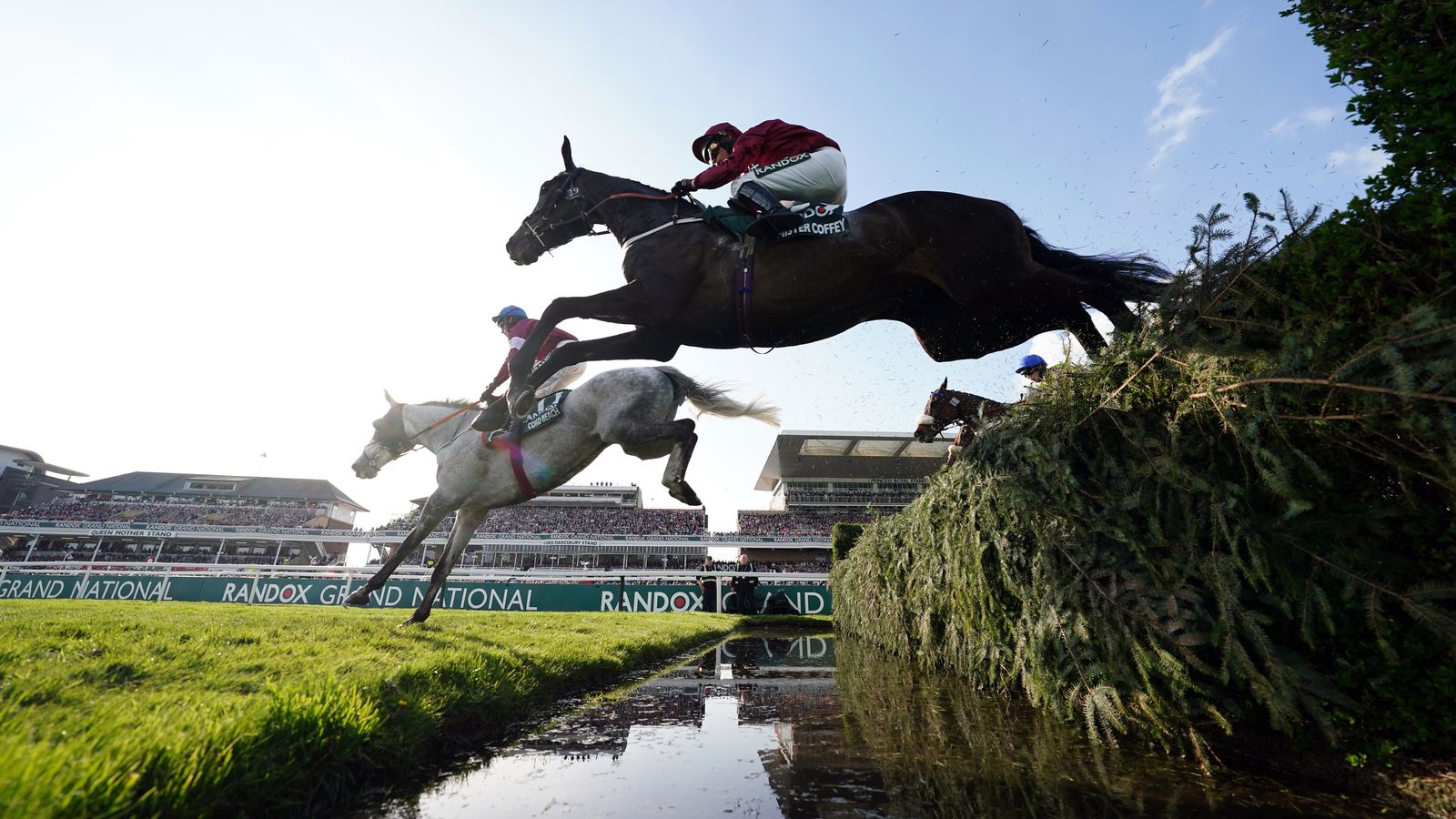


Horse racing carries risk, just like football or F1, a boss at the Aintree course has told Sky News – as today’s Grand National faces renewed scrutiny despite changes intended to make it safer.
Two horses died after falling at obstacles at the Merseyside track – Giovinco in Friday’s first race and Pikar in the last.
They were the first deaths at this year’s Grand National Festival on the second day and comes after three fatalities last year – including in last year’s showpiece race.
The RSPCA has called on the British Horseracing Authority to investigate the latest deaths.
“If racing is to continue, the BHA must make the sport as safe as possible for the animals we all love,” the charity wrote on X. “We will be discussing our concerns with them.”
Aintree clerk of the course Sulekha Varma told Sky News: “I think we have to acknowledge that there is a risk in all sports, whether it be horse sport, whether it be Formula One, whether it be football.
“Whatever you take part in, there is a risk of injury – that is competitive sport.
“But we have a moral duty as people who are running horse racing to do our very best to make that risk as minimal as we possibly can.”
Pressed on the risks in other sports that seem to have fewer deaths, Ms Varma referenced athlete deaths in later life. She was speaking before the announcement of the horses dying on Friday.
“Look at the concussion changes in rugby and football, look at heading the ball,” she said.
“There may not be injuries on the pitch, but there are further down the line and people are responding to those.”
The outcry over last year’s deaths was followed by a dozen adjustments to the world’s most gruelling steeplechase, which organisers insist were long in the planning.
Rachael Blackmore, the 2021 National winner, said the risk can be alleviated but never eliminated.
“There’s been a few tweaks, all to protect the longevity of the race and everyone’s trying their best to make the race safer and eliminate risk,” said the first female jockey to win the race.
“If you look at the percentages of horses that die racing, they’re so minuscule.
“And that’s just an unfortunate part of what we do. But I really wish some of those people could see how much we care and love these horses and how extremely well they really get looked after.”
Last year’s start was delayed by 15 minutes after animal welfare activists invaded the start of the course.
Read more from Sky News:
Former footballer diagnosed with cancer for third time
Escaped racehorse joins commuters at train station
“Using animals for entertainment is not something we should probably be doing in 2024,” Animal Rising’s Ben Newman told Sky News.
“These changes, although they are vindicating of the protest last year, and of the public’s concern for horse racing, they are really not going to make a difference.
“You can’t make jump racing safer or safe enough because any horse dying on a horse track for entertainment, isn’t a good thing.”
But Aintree officials insist the changes are an improvement.
“We also want to retain a competitive and exciting event,” Ms Varma said.
“So there was an element of protecting that, still having an exciting contest, but also seeing the opportunity to make things safer.”